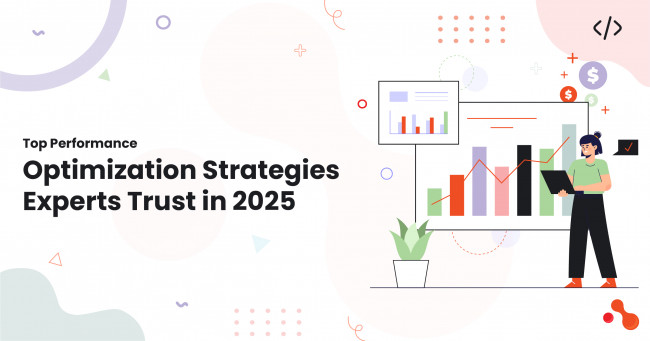
Salesforce Sales Cloud has been the industry leader in customer relationship management (CRM) solutions for over a decade, providing businesses with a comprehensive suite of tools to streamline their sales processes, boost revenue, and improve customer satisfaction. As the business world continues to evolve, it is essential to examine the future of Salesforce Sales Cloud and the trends that are likely to shape the industry in the coming years.
In this article, we'll explore the various trends and innovations that are expected to shape the future of Salesforce Sales Cloud, and how these developments can help businesses to stay ahead of the competition.
Artificial Intelligence (AI) and Machine Learning (ML)
Artificial intelligence and machine learning are already transforming the way businesses operate, and their impact on the Salesforce Sales Cloud is no exception. In the coming years, we can expect to see AI and ML play an increasingly important role in automating and streamlining sales processes.
One of the most significant benefits of AI and ML is their ability to analyze vast amounts of data and identify patterns that may not be apparent to humans. This data-driven approach can help sales teams to identify new opportunities, optimize their sales processes, and improve their overall performance.
Salesforce is already leveraging AI and ML to provide businesses with a suite of intelligent tools that can help automate routine tasks and improve the accuracy of forecasting. As these technologies continue to develop, we can expect to see even more sophisticated tools that can help sales teams to identify and prioritize leads, personalize their outreach, and deliver targeted marketing campaigns.
Mobile Integration
The rise of mobile devices has transformed the way businesses operate, and Salesforce Sales Cloud is no exception. In the coming years, we can expect to see an increasing focus on mobile integration, allowing sales teams to access the Salesforce platform from anywhere, at any time.
Mobile integration can provide significant benefits for businesses, enabling sales teams to access critical data and collaborate with colleagues on the go. By providing a seamless mobile experience, businesses can improve the productivity and efficiency of their sales teams, enabling them to work more effectively and deliver better results.
Salesforce is already investing heavily in mobile integration, with the Salesforce Mobile App providing a comprehensive suite of tools for sales teams on the go. As this trend continues, we can expect to see even more sophisticated mobile applications, providing sales teams with access to real-time data and insights, enabling them to work more efficiently and stay ahead of the competition.
Advanced Analytics
Salesforce Sales Cloud has always provided businesses with a suite of analytics tools to help them monitor their sales performance and identify areas for improvement. However, as data volumes continue to grow, we can expect to see a greater emphasis on advanced analytics tools that can help businesses to make sense of this data and gain deeper insights into their sales performance.
Advanced analytics tools can help businesses to identify patterns, trends, and correlations in their data, enabling them to optimize their sales processes and make better-informed decisions. These tools can also help sales teams to identify new opportunities and develop more effective sales strategies, enabling them to stay ahead of the competition and drive growth.
Salesforce is already investing heavily in advanced analytics, with tools like Einstein Analytics providing businesses with a suite of powerful analytics tools. As these technologies continue to develop, we can expect to see even more sophisticated analytics tools that can help businesses to gain deeper insights into their sales performance and optimize their processes accordingly.
Integration with Other Platforms
Salesforce Sales Cloud is already a comprehensive suite of tools for managing sales processes. However, as businesses continue to adopt new technologies and platforms, we can expect to see a greater emphasis on integration with other platforms, allowing businesses to leverage the power of Salesforce alongside other powerful tools.
Integrating Salesforce Sales Cloud with other platforms can provide businesses with significant benefits, allowing them to access a range of powerful tools and features
AI and Machine Learning
One of the biggest trends that will shape the future of Sales Cloud is the integration of artificial intelligence (AI) and machine learning (ML) technology. Salesforce has already introduced Einstein, a suite of AI-powered tools that are designed to help sales teams to work smarter and more efficiently. These tools can help to automate routine tasks, such as data entry, lead qualification, and opportunity management.
As AI and ML technology continues to evolve, it's likely that we'll see even more advanced tools being integrated into the Sales Cloud platform. For example, predictive analytics tools could help sales teams to identify patterns in their data, allowing them to make more informed decisions and improve their sales performance. We could also see the development of AI-powered chatbots, which can help to automate customer interactions and improve the customer experience.
Increased Personalization
As customers become more discerning, businesses will need to find ways to deliver a more personalized experience. Sales Cloud is already designed to help sales teams to personalize their interactions with customers, but we can expect to see this feature become even more important in the future.
One way that Sales Cloud could become more personalized is through the integration of social media data. By analyzing a customer's social media activity, sales teams can gain valuable insights into their interests, preferences, and behavior. This information can then be used to tailor the customer experience and deliver more relevant and engaging content.
Another way that Sales Cloud could become more personalized is through the use of gamification. By introducing elements of competition and reward, sales teams can motivate their reps to achieve their targets and improve their performance. This can be especially effective for younger sales reps, who are often motivated by social recognition and status.
Greater Integration
In the future, we can expect to see Sales Cloud become even more integrated with other Salesforce products and third-party tools. This will help sales teams to streamline their workflows and work more efficiently.
For example, Sales Cloud could be integrated with Service Cloud to allow sales reps to view a customer's support history and tailor their interactions accordingly. Similarly, Sales Cloud could be integrated with Marketing Cloud to allow sales teams to view a customer's engagement history and target them with personalized campaigns.
We can also expect to see greater integration with third-party tools such as LinkedIn Sales Navigator and ZoomInfo. By integrating these tools with Sales Cloud, sales reps can gain valuable insights into their prospects and engage with them more effectively.
Conclusion
Salesforce Sales Cloud is already an essential tool for sales teams, but the future is even brighter. The platform is likely to become more intelligent, more personalized, and more integrated with other Salesforce products and third-party tools. By embracing these changes, sales teams can work more efficiently, improve their performance, and deliver a better customer experience.














